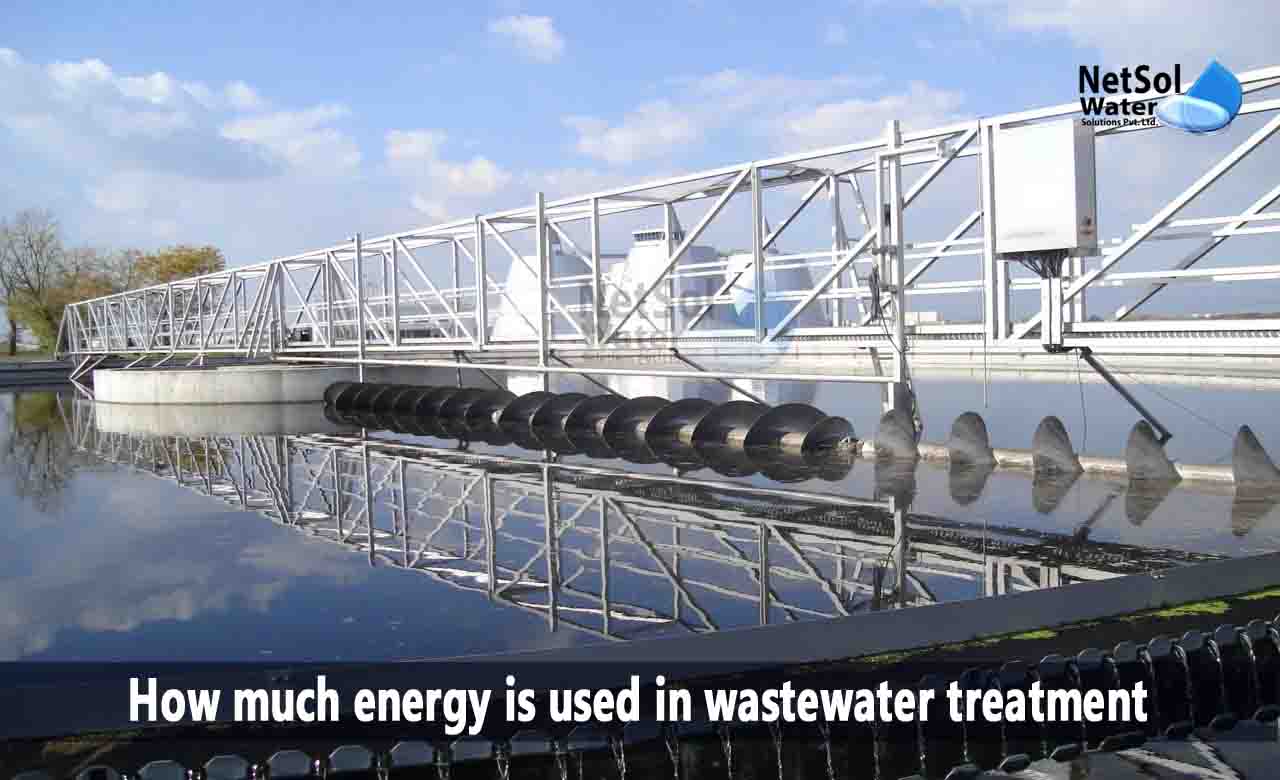The amount of energy used for wastewater treatment varies greatly across the country. This is due to a variety of factors, including changes in climate, equipment efficiency, pollutant types, and specific energy practices. There are numerous advantages to limiting energy consumption, as well as methods for doing so.
But, the question arises about the consumption of energy in wastewater treatment systems.
How much energy is used in wastewater treatment?
It is critical that your facility is held accountable for the energy used in water treatment. Some of the processes that require different amounts of power are preliminary treatment, sedimentation, chlorination, and processing sludge. There are also other energy-related uses to consider, such as lighting.
The type of pollutants in the water, the amount of these pollutants present, and the methods used to remove them, all influence the energy consumption of wastewater treatment plants. For example, trickle filtration typically consumes less energy, whereas nutrient removal consumes more. However, nutrient removal is frequently required.
Modern wastewater treatment plants should consume between 20 and 45 kWh/(PE•a)
[PE = Population Equivalent or unit per capita loading]
The lower figure applies to large plants serving more than 100,000 PE, while the higher figure applies to plants serving less than 10,000 PE. The higher the specific power consumption of a plant, the smaller it is.
The advantages of reducing water treatment energy consumption
There are several advantages to reducing energy consumption in a wastewater treatment plant, according to the Environmental Protection Agency (EPA).
· Increased Equipment and Infrastructure Life - By implementing more energy-efficient methods, energy consumption can be reduced, extending the life of the equipment. The need for maintenance will also be reduced.
· Reduced Pollution and Emissions - Reducing energy consumption can reduce GHG emissions and limit the amount of air pollution, produced by your facility. Pollutant emissions can be reduced by reducing the use of fossil fuels.
· Reduced Energy Costs - Wastewater treatment plants consume a significant amount of a community's energy resources. When your facility runs more efficiently and uses less energy, you can reduce overall costs.
· Improved Security - By limiting a community's electrical demand, greater energy efficiency can help prevent blackouts and brownouts. It can also help to reduce the likelihood of a water shortage.
· Better Public Health - Reducing energy consumption can help to reduce water and air pollution. Increasing overall efficiency can also help to reduce the risk of water-borne illnesses.
Reduce wastewater energy consumption
Conduct an Energy Audit - The first step towards lowering energy consumption is to conduct an audit, to determine your plant's exact energy expenditures.
Make a Plan - It is critical to develop an industrial water treatment plan that is specific to your facility. Following the identification of objectives, it is time to develop an action plan that will require management approval, and the implementation of training programs.
The following are some possible steps in the plan:
1. Install New Equipment - Older equipment is more expensive to repair and typically does not perform, as well as newer models. It is critical to use the most energy-efficient equipment possible and to maintain a preventative maintenance schedule.
2. Improve Pump Optimization - Pumping processes typically consume a large amount of energy, and offer opportunities for cost savings. When it comes to energy conservation, knowing which blowers or pumps to use and how often to use them is critical.
3. Implement Renewable Energy - Using on-site renewable energy sources is an excellent way, to reduce energy consumption while protecting the environment. Potential energy sources include solar, water, and wind.
4. Monitor and Maintain Improvements - On a regular basis, you'll need to evaluate what's working and what isn't, making changes as needed.
How can we assist?
If you have any questions about wastewater treatment plants or effluent treatment plants, or if you would like to discuss about the energy usage in WWTPs, please contact the Netsol Water team right away. Our team is an expert in water treatment and can help you tailor a solution to your specific requirements.
We design, manufacture, supply, erect, and commission Wastewater Treatment Plants (WWTPs) on a turnkey basis, for various types and natures of wastewaters, effluent treatment systems that combine advanced physico-chemical treatment processes with tertiary polishing systems, for the removal of organic, inorganic, oil and grease, heavy metals, and suspended solids.
Netsol Water is Greater Noida-based leading water & wastewater treatment plant manufacturer. We are industry's most demanding company based on client review and work quality. We are known as best commercial RO plant manufacturers, industrial RO plant manufacturer, sewage treatment plant manufacturer, Water Softener Plant Manufacturers and effluent treatment plant manufacturers. Apart from this 24x7 customer support is our USP. Call on +91-9650608473, or write us at enquiry@netsolwater.com for any support, inquiry or product-purchase related query.



